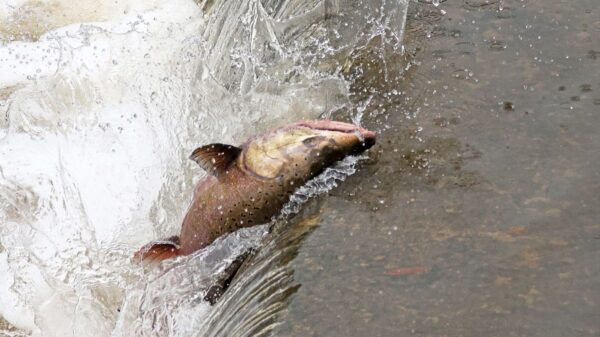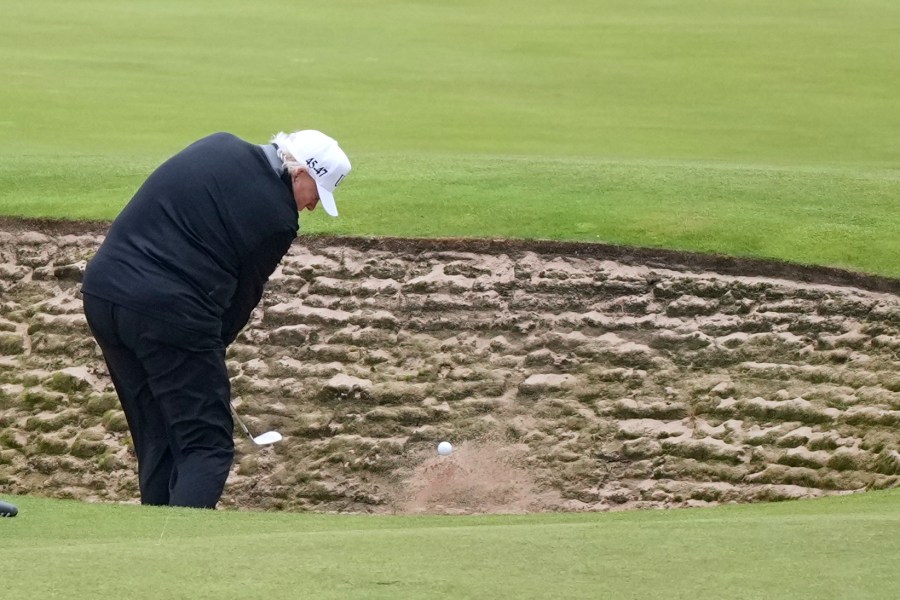Donald Trump is currently in Scotland for a five-day trip that combines work and personal interests. The former president is staying at his properties near Turnberry and Aberdeen, where his family owns two golf courses and is set to open a third on August 13, 2023. While the White House refers to this as a working trip, it is clear that golf and promoting his family’s businesses form a central theme.
Historically, U.S. presidents have taken vacations at various domestic locations, yet Trump’s itinerary marks a departure from tradition. His predecessors, from Abraham Lincoln, who sought refuge at the Soldiers’ Home, to Ronald Reagan, who found solace at Rancho Del Cielo, typically chose locations that allowed for relaxation and reflection. In contrast, Trump appears to be leveraging his time abroad primarily to bolster his business interests.
While in Scotland, Trump has engaged in discussions about trade with European Commission President Ursula von der Leyen and British Prime Minister Keir Starmer. These meetings underscore his continued focus on international relations, yet they coincide with a significant emphasis on his golf properties. Trump played golf at Turnberry over the weekend and is scheduled to participate in the opening ceremony of the new course, illustrating a blend of leisure and business.
Trump’s approach to this trip has drawn criticism regarding the ethics of intertwining presidential duties with personal business ventures. According to Leonard Steinhorn, a professor of political communication at American University, this trip serves as “yet another attempt by Donald Trump to monetize his presidency.” He added that Trump’s visit represents a public relations opportunity to promote his golf courses.
Presidential vacations have historically been a topic of scrutiny. For example, Franklin D. Roosevelt visited the Bahamas multiple times for fishing between 1933 and 1940, while John F. Kennedy frequented Palm Springs and Hyannis Port. However, Trump’s choice to organize a foreign trip around promoting his family’s investments is unprecedented.
Presidents have always balanced work and leisure during their time off. Even on vacation, they remain engaged with national security briefs and pressing issues. Historically, many presidents have vacationed at U.S. destinations that have become tourist attractions. For instance, Harry S. Truman popularized Key West, Florida, while Bill Clinton and Barack Obama contributed to tourism in Martha’s Vineyard.
Trump’s Scottish getaway raises questions about the appropriateness of such a trip. He has previously criticized the notion of presidential vacations, stating in his 2004 book, “Think Like a Billionaire,” that “Don’t take vacations. What’s the point? If you’re not enjoying your work, you’re in the wrong job.” His remarks resonate differently now, as he engages in activities that directly benefit his family’s financial interests.
The implications of this trip extend beyond Trump’s personal enjoyment, as it highlights a shift in how some presidents approach their time away from the White House. While every president weighs political considerations against leisure activities, Trump’s priorities appear distinctly focused on enhancing his business portfolio.
In a broader context, the location of presidential vacations has historically shaped public interest and tourism. According to Jeffrey Engel, director of the Center for Presidential History at Southern Methodist University, when a sitting president visits a place, it often attracts tourists eager to replicate that experience.
Trump’s Scottish trip, with its intertwining of personal and professional pursuits, serves as a reminder of how modern presidencies are evolving. As he navigates this unique blend, the implications for his family’s business ventures and the ethical questions surrounding them remain significant points of discussion.





































































